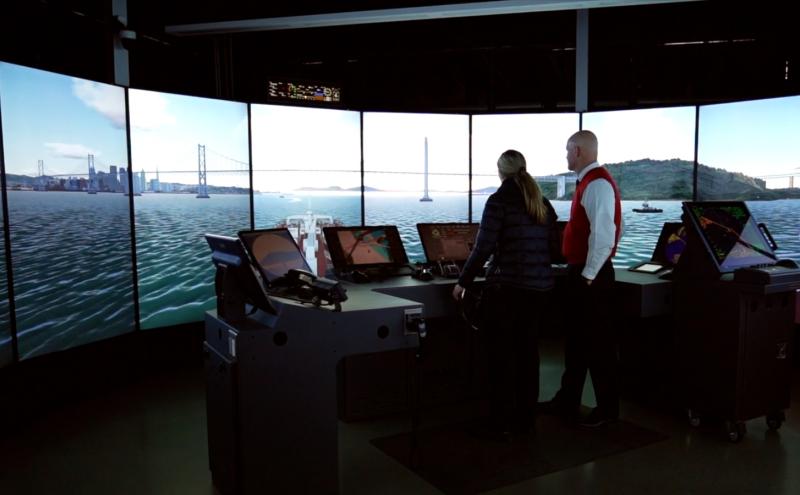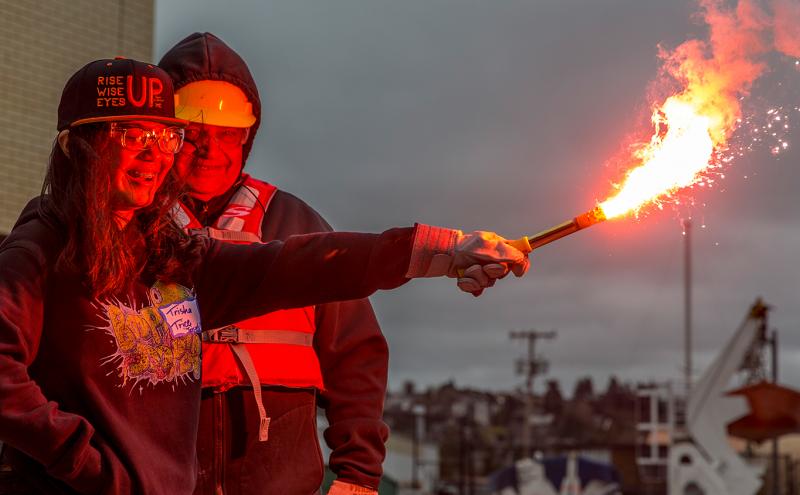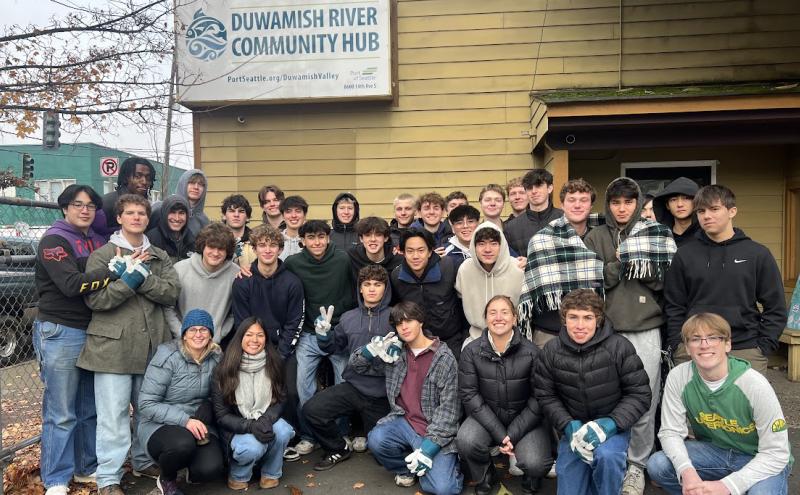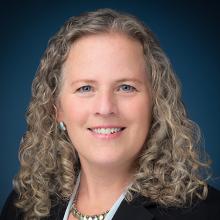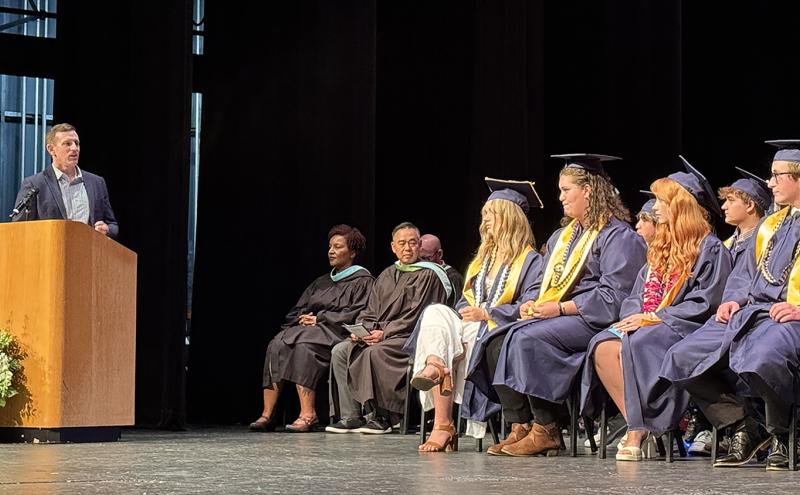
On June 18, 2025, a new wave of maritime professionals launched their journeys as Maritime High School (MHS) celebrated its inaugural graduating class. Thirty-one students crossed the stage that day, ready to chart careers in an industry that needs them now more than ever. Within the class of 2025, 15 students are advancing to higher education (including two attending California Maritime Academy), five students are entering the maritime industry, and 11 students are entering the workforce.
MHS’s launch comes at a crucial time for the maritime industry, which continues to face significant workforce shortages both ashore and afloat. Industry experts predicted a global shortage of more than 150,000 qualified mariners by 2025, and recent trends indicate this challenge persists. Locally, the Port of Seattle and maritime employers need young talent to maintain and grow the industry that supports our region’s economy and environment. The Port is investing in MHS to help build pathways into high-wage, high-demand maritime careers for local students, ensuring the industry’s vitality and creating opportunities for future generations.
Investing in the next generation
More than six years ago, led by the advocacy of Port Commissioner Ryan Calkins, the Port of Seattle began conversations about launching a maritime-focused high school that would connect education with industry needs. Ultimately, the Port committed to investing $1.25 million over the last five years to help stand up the school. MHS, which opened September 2021, is now a collaborative project of Highline Public Schools, Northwest Maritime Center, the Duwamish River Community Coalition, and the Port of Seattle. MHS’s educational approach combines traditional academics with hands-on maritime training, including off-campus learning experiences that provide industry exposure and, in some cases, certification. Students choose from three learning pathways — marine science, vessel operations, and marine construction. Additionally, juniors and seniors from all three pathways collaborate on real-world projects, ensuring a comprehensive blend of academic and practical marine education.
Learning by doing
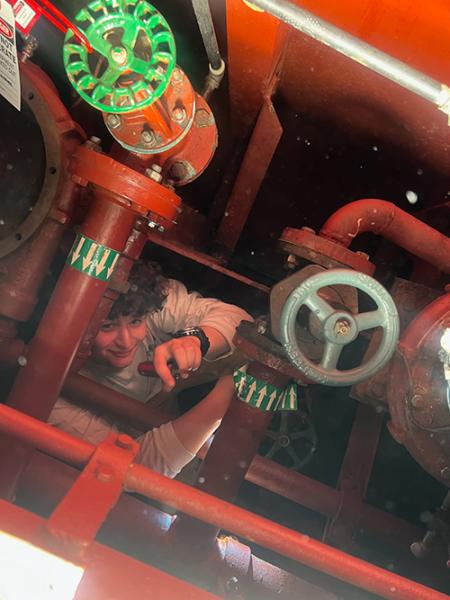
2025 graduate Henry Peters reflected on his experience at MHS. “I loved the hands-on approach to learning. I’ve always learned better by doing. For anyone who learns better outside of the classroom, or learns [with their hands], I highly recommend MHS,” he said.
During his time at MHS, Henry chose the vessel operations pathway, where he obtained his Transportation Worker Identification Credential (TWIC), essential for workers who need secure access to maritime facilities, ports, and vessels. Additionally, Henry received an endorsement to become a Qualified Member of the Engineering Department (QMED), which would allow him to work on mechanical system maintenance and operation in a ship’s engine room.
Henry’s education and certifications helped him get a summer internship with a Harbor Island tugboat company, where he’ll gain valuable professional experience on the water while obtaining his QMED. “I want a career of working on boats,” Henry said. “I hope to work locally for a few years, save money, and then get a job doing deep-sea work. I know that this work pays well, and I’ll be able to save [money]. So, if I ever want to go to college, I’ll be able to pay for it.”
Supporting science at sea

2025 graduate Mara Mersai first applied to MHS to pursue her dream of becoming a marine biologist. But after a couple of years at MHS, Mara realized how much she enjoyed working on boats. “All of the hands-on experiences and learning taught me that I wanted to work on boats and support [marine] science, instead of becoming a marine scientist,” Mara said.
Like Henry, Mara chose the vessel operations pathway, and while at school, gained her TWIC, QMED endorsement, basic training and certifications (including CPR), and a technician’s certificate. She is currently applying for an internship with Washington State Ferries that begins in the Fall. If she gets the internship, she’ll be well on her way to becoming a marine engineer. After gaining a few years of professional experience in the industry, Mara has her sights set on working on sea creature explorations with an organization like the National Oceanic and Atmospheric Administration (NOAA).
Building pathways to maritime careers
Mara’s and Henry’s stories illustrate the incredible benefits of the career-connected learning and hands-on approach of Maritime High School. “If you’re at all interested in working in the maritime industry, then come to Maritime High School. You’ll get a lot of valuable experience to start your career in maritime,” Mara said.
The Port is proud of its investments and partnerships that have helped to create and sustain Maritime High School. This is a critical part of our strategy to create pathways for community members to gain careers in this industry.
Congratulations to Maritime High School’s inaugural Class of 2025! You all are a shining example of what’s possible at the intersection of education and industry.
Learn more about Maritime High School and how to apply.

